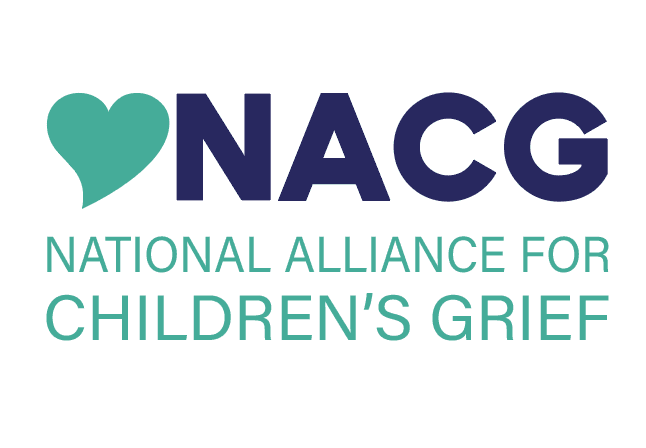
It is a new year and there is lots of excitement that can come with it. Many are working on setting goals and looking ahead to all the potential the year can bring. For those grieving, it is just another reminder that it is a new year without the a loved one. Coming off a trying holiday season, it can be difficult returning to some sense of normalcy at work, school or home knowing the complicated feelings of loss are still looming.
Be conscious of where you are in your grief. The information below may seem overwhelming, but remember, there is no real timeline for grief. Being patient and kind with yourself goes a long way in the process of healing.
As a way to set the intentions for the new year taking into consideration your grief, we have provided a general 12 months of healing guide that you may find beneficial in helping manage different aspects of your grief throughout the year.
January: Visualization, where do you want to be in a year from today? – Visualization is a step up from simply creating New Year’s resolutions. The idea here is to take a moment to mentally see where you will be a year from now. What has changed? What has not? Where are you in your grief? What are the choices you are making today that shape aspects of your future self? Using this information, you can create a plan that can help get to your ideal future self. Key word here is ideal, not perfect. It is important to remain objective and realistic.
February: Self-Love – In a month where love is all around, it is important to provide that kindness and care to a very important person, yourself. Grief can lead to feeling disconnected from the world but also from your own self-care. Just as allowing yourself the space to feel pain can help you process loss, seeking out activities that make you feel appreciated and loved can also have tremendous healing powers.
March: Physical activity – Keeping active can help re-focus excess mental stress that can be brought about by grief into a physical realm where you are engaged. Having some form of exercise (running, yoga, meditation, etc.) can help you feel empowered and in control in the midst of uncertainty that comes with loss.
April: Connecting with nature - Finding ways to connect with nature is especially gratifying. Research has shown the benefits of nature walks in reducing stress, depression and increase happiness. Whether you enjoy a day at the beach or an early morning hike, find ways to connect with the outside world to help encourage a sense of calm.
May: Connecting with others and allowing support – Having a good support system is important, allowing yourself to be supported by others is even more crucial in the healing process. When we experience loss it can be lead to moments of self-isolation as we attempt to process our emotions. In this process we can become disconnected from those who care about us. The vulnerability that comes with opening up to others can be difficult, but necessary if we want to progress in in our grief.
June: Mid-Year Check-in, mentally and physically – At this point of the year there are many things ongoing that can distract us from noticing physical and mental symptoms of grief. Make sure to get medical check-up and seek out professional mental help if you are experiencing complicated symptoms of grief.
July: Grounding, staying in the moment – Staying in the present is complicated when your mind roams to a past memories and an unknown future. Finding a grounding technique that can help you stay in the present can minimize symptoms of stress and reduce painful emotions. There are many mindfulness activities that help you maintain a implement a regular grounding techniques in your everyday life.
August: Forgiveness for self and others – Forgiveness is especially difficult when you are dealing with a loss. Whether is forgiveness of your loved one or of yourself, it can lead to painful and confusing emotions. Taking the time to process feelings of anger and disappointment can help promote forgiveness in yourself. This does not mean the dead are excused from their actions but it does mean working towards this can reduce intense emotions impacting grief. Seek professional help when in doubt.
September: Rest and Re-fresh, slow down - Slowing down seems almost impossible when life happens whether you want it to or not. Many of the responsibilities we hold can be exhausting and overwhelming to accomplish even without the grief. Finding the space and time to rest your body and your mind is important in re-energizing yourself for those busy moments in life. Make a point to check you are getting adequate amount of sleep and that you are not purposely overextending yourself on tasks.
October: Honoring the memory – Taking the time to honor the life of a loved one who has died can create new rituals and traditions that validate the time you shared. This does not have to be through complicated acts if you do not wish it to be. Simple things such as sharing stories with family and friends or lighting a candle can keep the memory of your loved one alive. These new rituals can have a very healing and calming effect.
November: Grateful actions – At this time of year, we hear a lot about giving and being present for others. This is easier said than done when we have experienced a loss. Healing from loss can be a long and lonely process, however turning our attention to gratitude and how it can enrich our lives can make the grieving process less painful. Whether you choose to donate your time or money to a cause, taking grateful actions in life enhances your relationships with the world around you. Simple things such as letting a busy mom go in front of us in line or putting an extra quarter in someone’s meter are examples of grateful actions in everyday life. It does not have to be anything big or substantial to make a change for others and ourselves.
December: Reflection and acknowledging growth – Taking a moment to look back on the year objectively can help us acknowledge the growth and healing we have done throughout the year. Reflection is an important tool that can be used to not only look back but it is also helpful in identifying other areas to focus on in the next year.
This guide is of course a general template that can be modified to your specific needs and desires. Take into consideration different events, holidays, death anniversaries and so on that can lead to an increase in feelings of loss and instability. The main point of this is to allow yourself time think and plan ahead in implementing strategies that promote healing.
If you're interested in joining our FREE grief support groups, please click here to learn more: https://mailchi.mp/childbereavement/signup









